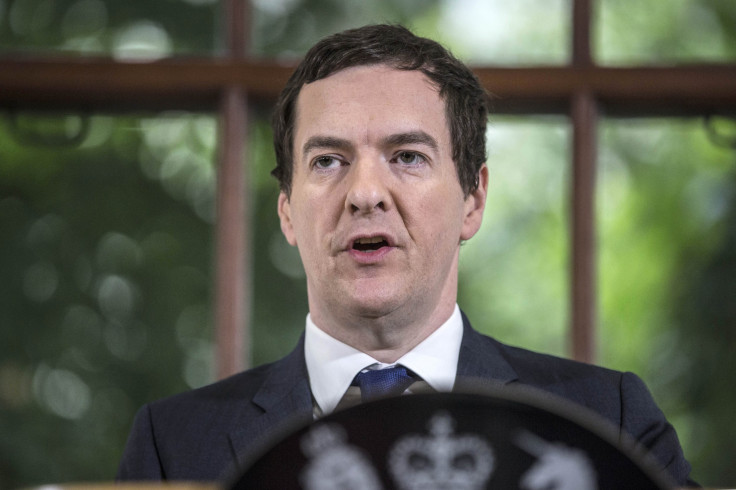Brexit: UK Treasury Chief George Osborne Announces Plan To Slash Corporate Tax

U.K. treasury chief George Osborne announced plans to cut corporation tax in the country to 15 percent or less from the current level of 20 percent in an effort to keep businesses from leaving the U.K. in the aftermath of last month's Brexit vote. The new tax target, revealed during an interview with the Financial Times, is part of the chancellor's efforts to reassure investors and build a "super-competitive economy."
"What’s done is done. The British public has spoken. We should accept their verdict instead of moping around or trying to unpick it," Osborne, who has been a vocal opponent of the U.K.'s move to leave the European Union, said. "We have now got to be part of a supreme national effort to make it work for the British people. I’m going to do my best over the next coming months, then it’s up to the next Tory leader whoever he or she may be."
The tax cut, if implemented, would give the U.K. the lowest corporate tax of any major economy and bring it closer to countries like Ireland, where the tax is currently 12.5 percent.
Osborne had previously announced plans to cut the corporation tax to 17 percent by April 2020. Although he did not specify a timeframe for slashing the corporation tax to less than 15 percent, the chancellor said that the U.K. must "get on with it" to prove to investors that the country was still "open for business."
"I don’t think we should feel sorry for ourselves as a country," Osborne said. “We’ve got to pick ourselves up and make the best of it and make the most of it."
The U.K.'s economic outlook has been clouded by the surprise vote to exit the EU. Since the June 23 referendum, the pound has fallen over 11 percent against the dollar, hitting levels not seen in over three decades. Last week, Osborne was also forced to abandon a key economic goal outlined earlier this year — to return the government's finances to a surplus by 2020.
And, as a result of the global uncertainty triggered by the vote to leave the EU, and doubts over the U.K.'s standing on international markets, ratings agency Standard & Poor's downgraded the country's rating by two notches — to AA from AAA.
"In our opinion, this outcome is a seminal event, and will lead to a less predictable, stable, and effective policy framework in the U.K.," S&P said in a statement.
The corporate tax cut is just one part of a broader plan to boost domestic economic growth in a post-Brexit world. The Bank of England has already made 250 billion pounds in emergency cash available to British lenders and has even hinted that it may cut its key interest rate — currently at 0.5 percent — "over the summer."
© Copyright IBTimes 2025. All rights reserved.






















